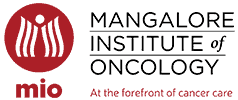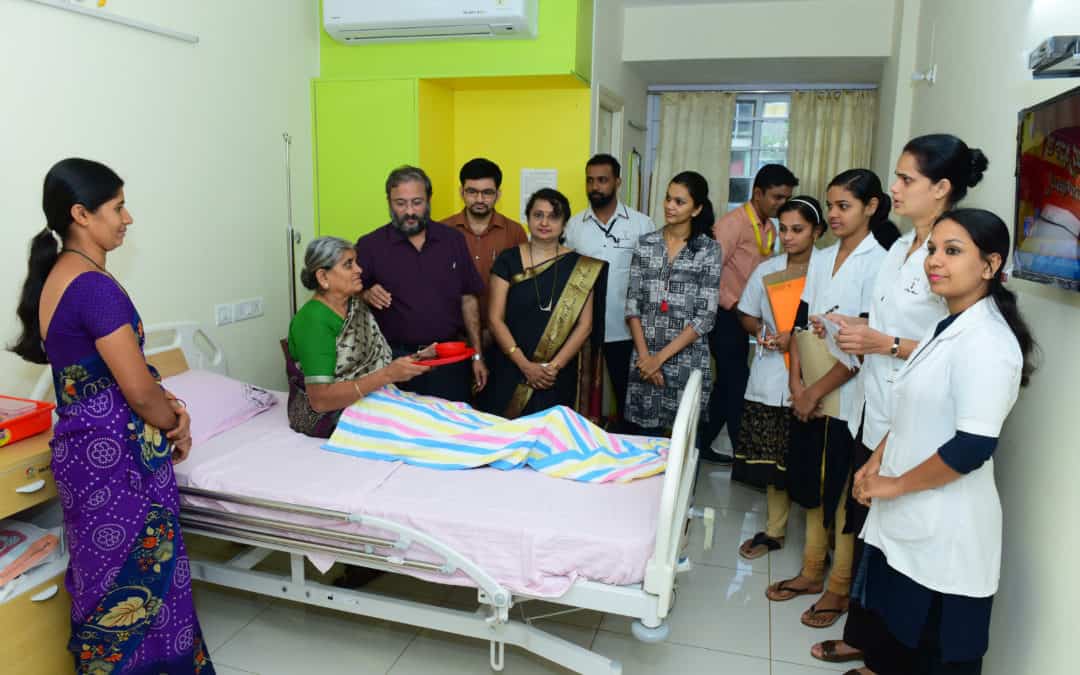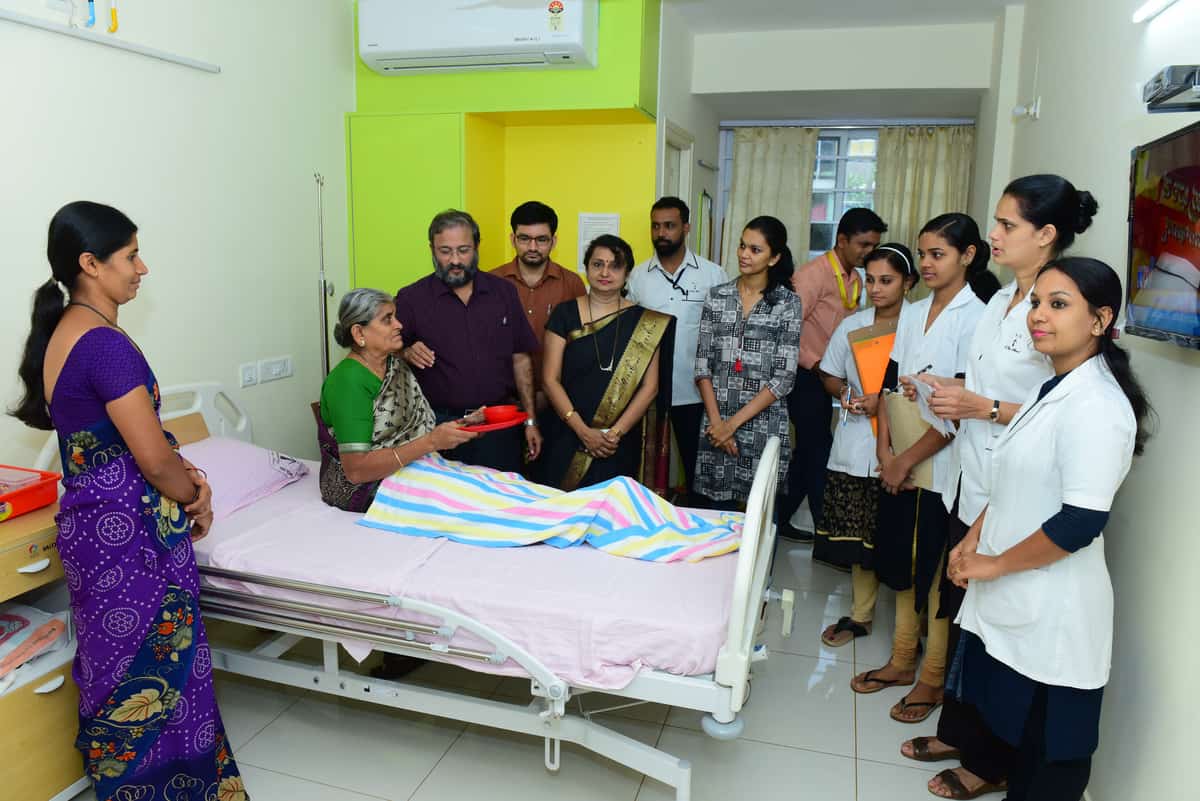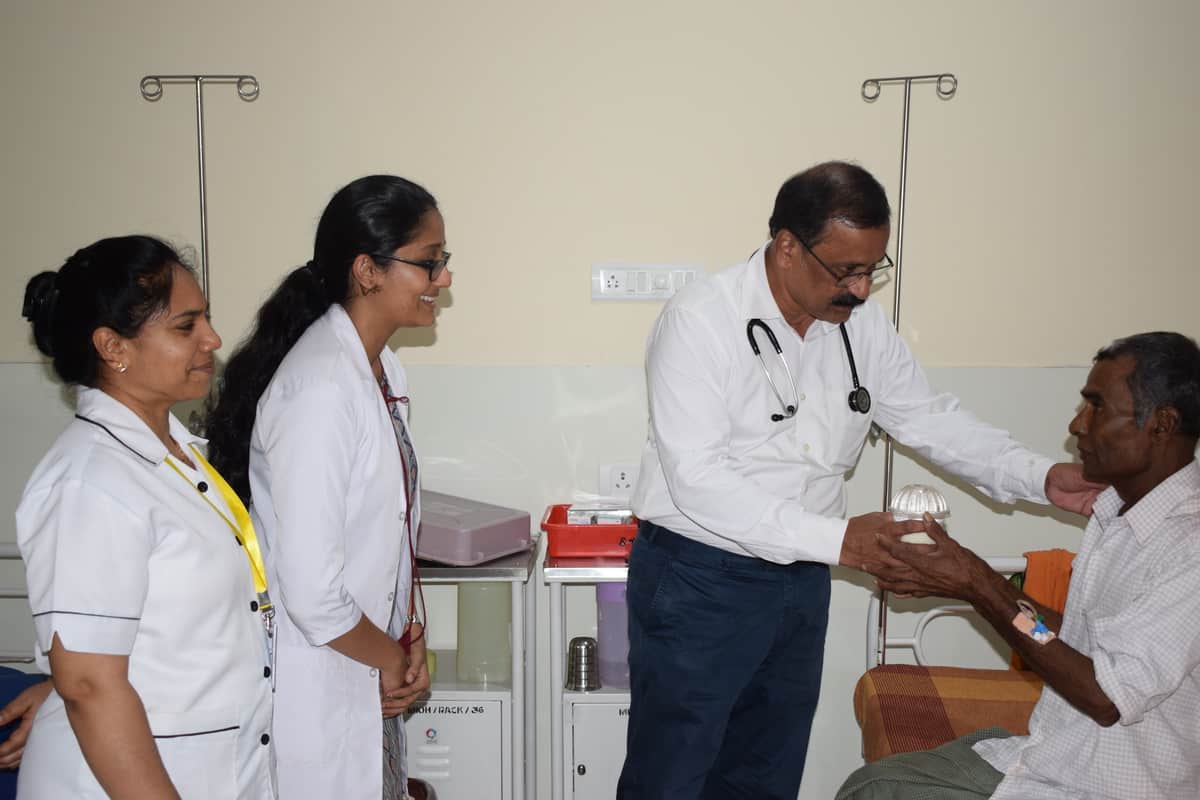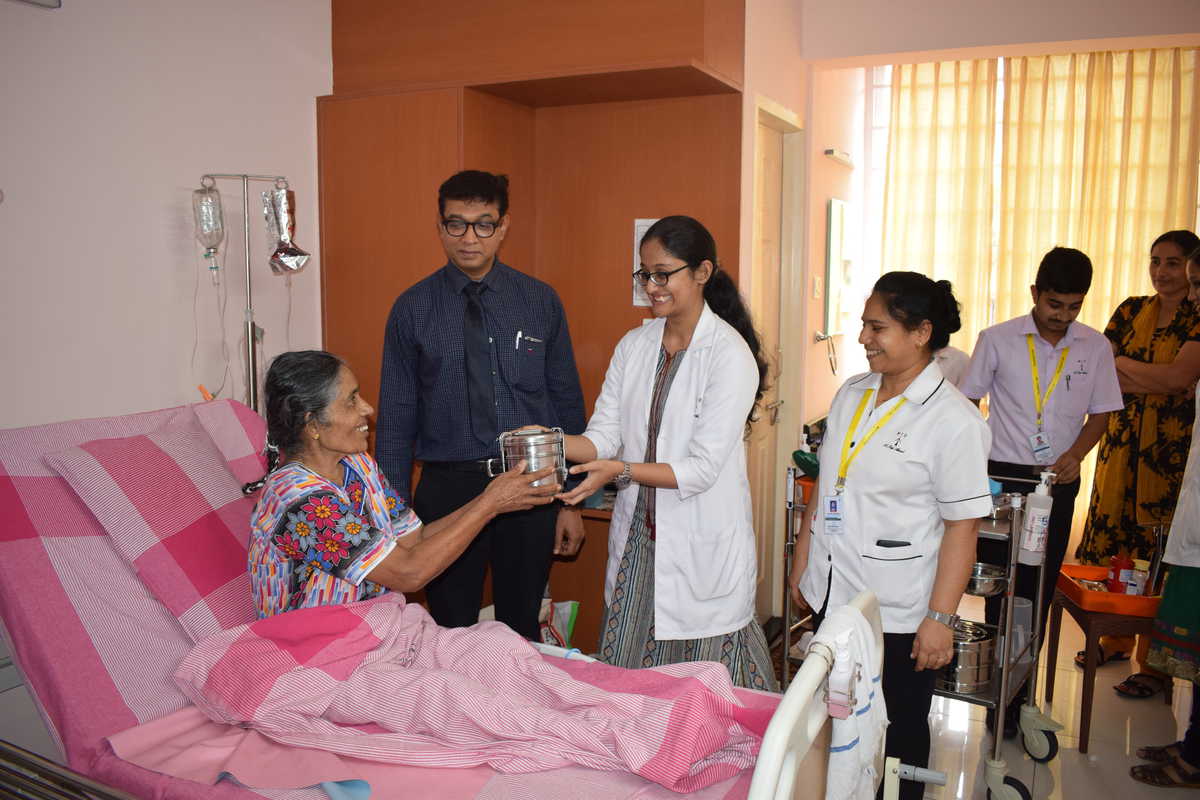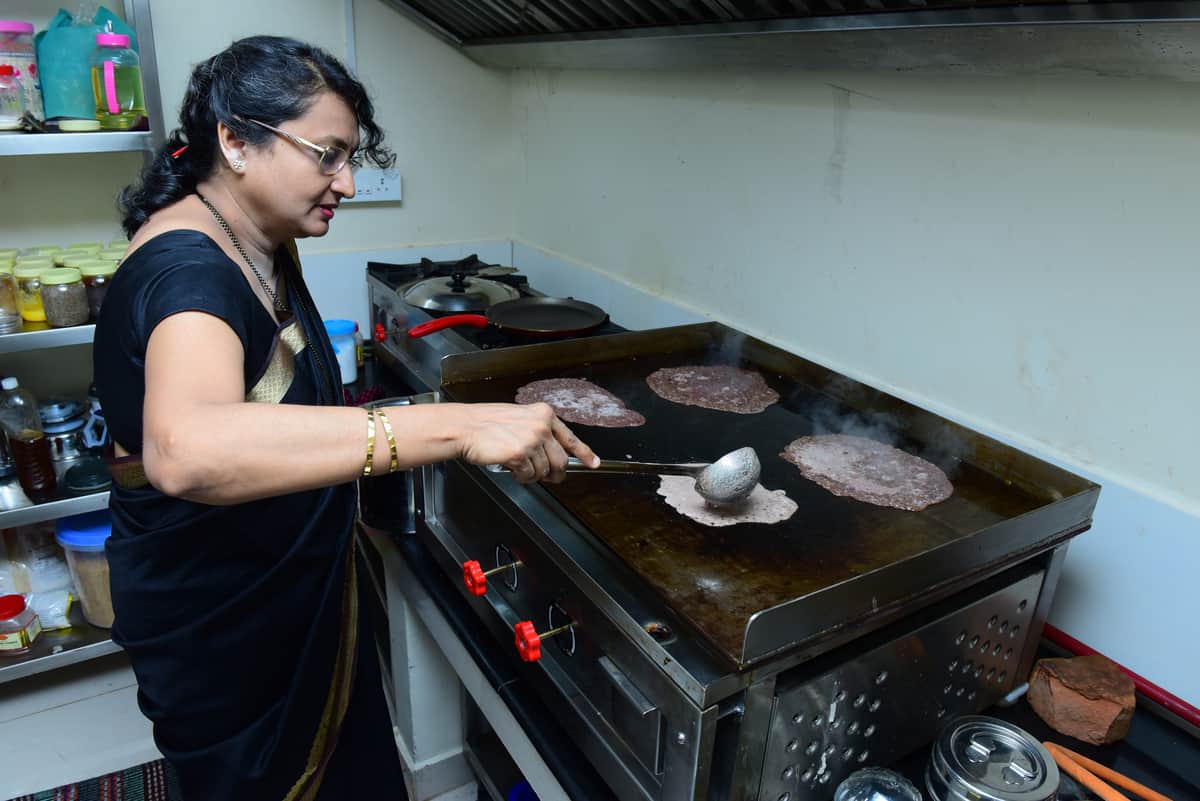Diet and nutrition are an important aspect of cancer treatment. A complete diet full of nutritive constituents made specifically for the patient affords protective effects and helps in recuperation. Its due to this reason, malnutrition in cancer patients and survivors are common. A diet depleted of essential nutritive constituents triggers/ hastens anorexia (loss of desire to eat) and cachexia. In addition to this, cancer treatment like chemotherapy and radiotherapy can put a lot of nutritional demand on the patient’s body.
The principle objective of a dietician is to apprise, quantify and understand the underlying factors responsible for the malnourished condition and to formulate personalised diets to mitigate them. The main nutritional goal during treatment is to maintain healthy weight by consuming sufficient calories and nutrients for energy, repair, recovery, and healing. A healthy eating pattern includes plenty of vegetables and fruit, moderate amounts of whole grains, and appropriate protein. Thus making it important to consistently consume healthy food and drink nourishing beverages. To achieve this, a dietician works along with physicians, nurses, psychologists, social workers and patient family/care-givers, to obtain optimal results.
At MIO, a super speciality cancer treatment centre, people afflicted with cancer are treated with Radiation, Chemotherapy and Surgery, single or in combination. Each of these treatment/s exert specific stress on nutritional intake and if unchecked and not rectified can lead to cachexia and anorexia. The Department of Clinical Nutrition and Dietetics aims at meeting the requirements of the patients, in terms of their nutritional needs, route of feeding and tolerated consistency, factors essential in Oncology Nutrition. The nutritional needs of every patient varies with macronutrients – carbohydrates, protein and fats and micronutrients – minerals & vitamins. The consistency of the foods vary from normal to soft, pureed to liquids, which is patient and condition specific.
The menu for the patients at MIO are condition specific and follow a disease specific nutritive regimen consisting of food sources rich in essential macro and micronutrients, body building and immune modulators to help them recuperate faster. The menu for the patients follows the ‘five meal pattern’, i.e Breakfast, Mid-morning soup, Lunch, Evening snack and Dinner, incorporating indigenous dietary constituents like carrots, tomatoes, beetroot, green leafy vegetables, onions, turmeric (haldi) milk, ginger, mint, jeera, garlic, jaggery, honey and season specific fruits. In addition to this, the patient and their care givers are provided with nutritional counselling, before initiation of treatment, during and on completion of the treatment for better recuperation and early healing.
To conclude, nutrition is very important during management of cancer. Sepsis is a major cause of death in cancer and good nutrition plays a very important role in preventing death by sepsis during radiation, chemotherapy and surgery. Hence, MIO gives emphasis to close monitoring of nutritional status of patients undergoing treatment.
